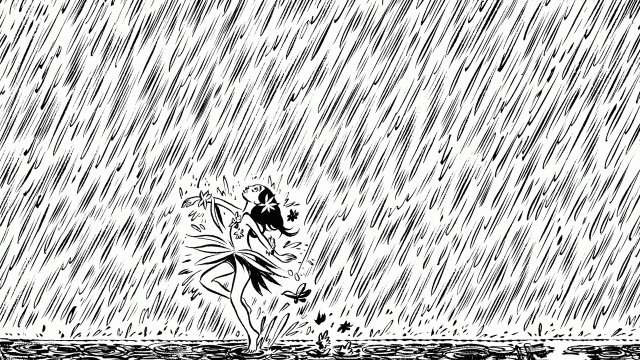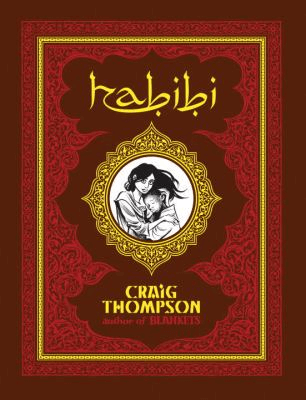Habibi by Craig Thompson is an epic, sweeping graphic novel. Set in a mythical, Middle Eastern-inspired country, it tells the interweaving stories of two characters who live much of their lives as slaves. The book contains absolutely fantastic illustrations, allusions to the Quran and the Bible, and themes of love, loss, hope and storytelling; it’s one of the top-ten most frequently challenged books in the United States. And I really didn’t like it.

We often spend time lauding our favorite banned books, and for good reason. Without the freedom to read, access to classics like The Color Purple, Animal Farm and I Know Why the Caged Bird Sings would be severely limited for lots of readers. The same goes for newer titles; several of the selections on last year’s list of frequently challenged books are great, high-quality texts that were challenged primarily because they dare to provide information to young people about gender and sexuality. Even modern classics like Harry Potter, with its themes of bravery and friendship, ended up on the top of banned books lists during the height of the series’ popularity. But what about a book like Habibi, which I personally found, among other flaws, to be racially insensitive and sexually exploitative?
Well, spoiler alert, even though I didn’t like it, I still think it should be on our shelves.
Banned Books Week doesn’t just celebrate the books we love that happen to contain themes or subjects that some audiences find controversial. It goes beyond that — it’s about making sure we have access to all information, whether we agree with it or not. That’s the philosophy that libraries were founded on, and it’s one we continue to fight for. Last year, Slate published an article calling the celebration of Banned Books Week “a crock,” declaring that the fight against book censorship was essentially over, and that drawing attention to it is a meaningless exercise.

Needless to say, I disagree. Celebrating Banned Books Week isn’t only about the current freedom to read, but is a celebration of the free speech victories that got us where we are today. And although information is much more easily accessible than when Banned Books Week first started, preserving and providing low-barrier entry to ideas of all kinds is still an essential role that libraries play. (Not least of all because it’s a major mistake to assume that all people have the same level of unlimited Internet access.) In a divisive political climate, in a time where information literacy is a crucial skill, I think it’s fundamentally important for a publicly accessible outlet like the library to allow people to decide for themselves what to read and what to think about it.
Because of our freedom to read, you don’t have to take my word about Habibi, you can check it out and decide for yourself. (Many other folks, including some of my colleagues, loved it!).
Banned Books Week 2016: Decide for Yourself
Check out a copy of HabibiGinny is a baker of treats, reader of fiction and Coordinator of Volunteer Services based out of the Office of Programs and Partnerships at CLP – East Liberty. She wants to pet your dog.
